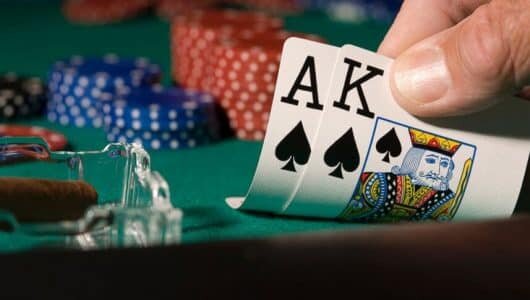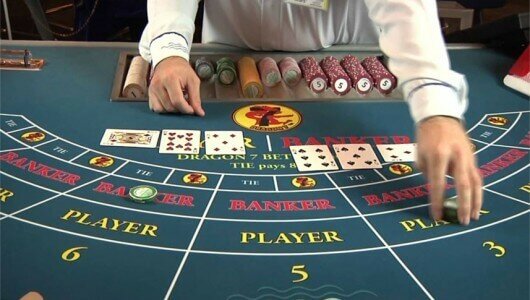Popular Pai Gow Game in Online Casinos: A Simple, Safe Guide
Pai Gow looks hard at first. But it is calm, slow, and fair. It gives many pushes, so your money lasts longer. In this guide, you will learn rules, hand setting, house edge, simple tips, and safe play. You will also see how to pick a good site and how to start in ten minutes. If you want a quick list of trusted places, you can read reviews on The Gambling House. We keep the language simple. No fluff. Only clear steps.
What is Pai Gow?
Pai Gow is a table game. There are two versions:
- Pai Gow (tiles) uses Chinese tiles.
- Pai Gow Poker uses playing cards. This is the one most people play online.
In Pai Gow Poker, you get seven cards. You must make two hands: a five-card hand (called the high hand) and a two-card hand (called the low hand). Your high hand must be stronger than your low hand. You compare both hands with the dealer. You can win, lose, or push. There are many pushes. That is why people like the game.
Online casinos offer Pai Gow Poker because it is friendly to new players. It is not too fast. You can think. You can learn good moves with a small budget.
Pai Gow Poker vs. Pai Gow (Tiles)
Here is the key difference in plain words:
- Tiles: historic, hard to learn for new players, rare online.
- Poker: uses normal cards, easy to learn, common online, many live tables.
This article will focus on Pai Gow Poker, since it is the most popular choice in online casinos.
How Pai Gow Poker Works (Rules in 5 Short Steps)
- The goal: Make two poker hands from seven cards:
- High hand = 5 cards (like normal poker)
- Low hand = 2 cards
- The joker: Some games use a joker. In most rules, the joker is an ace, or it can finish a straight or a flush in the high hand. Always read the game rules in the table info.
- The deal: You and the dealer each get seven cards. In live games, the dealer sets a “house way” (a fixed method). In RNG games, you set your own hands, or you can click “house way.”
- Compare: Your high hand vs dealer’s high hand. Your low hand vs dealer’s low hand.
- Win both = you win.
- Lose both = you lose.
- Split = push (your bet returns).
- Payouts and fee: Classic tables may take a small fee (commission) on wins. Some “no-commission” tables use special rules to balance this. Read the paytable before you play.
Popular Online Variants
- Commission Pai Gow: A small fee on wins. Many pushes. Lower risk feel.
- No-Commission Pai Gow: No fee, but special rules adjust edge. Read the help page before you play.
- Fortune / Bonus Side Bets: These pay on strong poker hands. They raise risk and swing. They can be fun, but they do not lower the house edge.
- Progressive Jackpots: A side bet goes to a shared jackpot. Chance is small; swings are big.
- Banker Option (rare online): In some rules, the player can “bank” and act like the dealer for a hand. This is complex. Many sites do not offer it.
House Edge, RTP, and Bankroll Basics
House edge is the built-in advantage for the casino over time. In Pai Gow Poker it is usually modest, and you see many pushes. This is good for learning and for small bankrolls.
RTP (return to player) tells how much money returns to players over many rounds. It is a long-term stat. It does not predict your next hand.
Bankroll plan: Pick a small base unit (for example, 1%–2% of your total budget). The game is slow, so you can play many hands with less stress. Avoid big side bets if your budget is tight. Side bets feel fun, but they increase volatility.
Simple Strategy: How to Set Your Hands
Here are plain rules of thumb. They are not perfect, but they help you avoid big mistakes:
- Keep your high hand strong. Your low hand must be weaker than the high, but not too weak.
- Use pairs well. Often, keep a pair in the high hand. But if splitting a pair makes both hands decent, consider a split (depends on the rest of your cards).
- Ace in the low hand is helpful. An Ace-high low hand is often solid if your high hand stays strong.
- Do not weaken both hands. If a split harms the high hand too much, do not split.
- Read the “house way.” It shows how the dealer sets hands. Use it as a guide while you learn.
Worked Examples (Quick and Clear)
Example 1: A♠ A♥ 9♣ 9♦ 7♠ K♣ 2♥
- You have two pairs (Aces and Nines), plus K-2.
- Common plan: Put A♠ A♥ 9♣ 9♦ 7♠ in high (Full House) if rules allow? Wait—five cards make only one hand. So choose: keep two pairs in high or split.
- Better plan: Keep Aces as high hand’s pair; send K-2 to low → High: A♠ A♥ 9♣ 7♠ 2♥ (Pair of Aces). Low: K♣ 9♦ (King high).
- Why: Strong high hand, okay low hand. Do not break Aces unless you must.
Example 2: K♠ K♦ Q♣ J♣ 9♣ 6♥ 6♦
- Two pairs: Kings and Sixes, with Q-J-9 leftover.
- Plan 1: Keep K-K in high and send Q-J to low → High stays strong, low is decent (Q-high).
- Plan 2: Split pairs to make K-6 low and Q-J-9 help high? Bad. You weaken both hands.
Example 3 (with Joker): A♦ Joker Q♦ 10♦ 8♦ 8♠ 4♠
- Joker can finish a flush. High: use Joker to complete a diamond flush (A♦ Q♦ 10♦ 8♦ + one filler).
- Low: 8♠ 4♠ is very weak, but the high hand is now strong. If low is too weak, consider moving a card to raise it, but never break the high hand too much.
Note: If you feel lost, click “house way” while you learn. Then try to set by yourself.
Live Dealer Pai Gow vs. RNG Pai Gow
- Real dealer, real table.
- Slower pace. Good for calm play.
- Social chat. Clear shoe, clear burn, clear deal.
- Faster hands. Good for practice.
- Lower limits in many lobbies.
- Easy “house way” button.
Safety: Licensing, Fairness, and Payments
Always check the license, test seals, and support. This is not hard. It takes two minutes and can save you trouble.
- License: Look for a valid regulator. You can read about strong rules at the UK Gambling Commission (UKGC) and the Malta Gaming Authority (MGA).
- Testing: Fair games are checked by labs. One known group is eCOGRA. Their seal shows the site was tested.
- Responsible tools: You should see deposit limits, time alerts, and self-exclusion. Learn more at GamCare and GambleAware.
- Payments: Read the banking page before you join. Check fees, min/max, and time frames for payout.
- Support: Try chat once. Ask a simple rule question. Fast, clear answers are a good sign.
If you want a shortcut, compare real tests and payout checks in the independent reviews on The Gambling House. We look at rules, banking speed, service quality, and clear “house way.”
How to Choose a Good Pai Gow Casino (Quick Checklist)
- Valid license (UKGC, MGA, or other strong body)
- Fair-testing seal (eCOGRA or similar)
- Clear Pai Gow rules and “house way” in the help page
- Table limits that fit your bankroll
- Banking page with normal fees and fair payout times
- Live chat that replies within a few minutes
- Responsible play tools you can turn on fast
Quick Start: A 10-Minute Plan
- Open the game in demo (if allowed). Play 10 hands. Learn the flow.
- Read the table help page. Check the joker rule and “house way.”
- Set a small budget and a base unit (1%–2% of bankroll).
- Play 10 hands at low stakes. Try to set your own hands.
- Try one side bet only if you want extra fun and accept bigger swings.
- Move to live dealer when you feel ready and want a slower pace.
Mini Guide to Side Bets (Simple View)
- What they do: Pay for strong poker results (like Straight Flush).
- Good for: Fun and big hits if luck comes.
- Warning: They raise volatility and often have higher house edge.
- Plan: Keep side bets small. Never let a side bet be bigger than your main bet.
When “No-Commission” is Better (and When Not)
No-commission tables remove the usual fee on wins. But rules change to keep balance. For example, some rare dealer hands may cause a push instead of a win. Read the help page and try demo if you can. If the changes feel fair to you, go ahead. If not, classic tables are fine.
Common Mistakes (and Easy Fixes)
- Breaking a strong pair too soon: If you weaken your high hand, you may lose both hands. Keep strong pairs together unless a split clearly helps both hands.
- Making the low hand too weak: Try to keep at least a strong high card (often Ace or King) in the low hand when possible.
- Chasing side bets: Fun is fine, but do not raise side bet size after a loss. Keep it small.
- Skipping rules: Always read the table info first. It takes one minute and prevents bad surprises.
Small Strategy Map (You Can Save This)
- Check for pairs, trips, or better.
- Try to keep the high hand strong.
- Raise the low hand to Ace-high or King-high when you can.
- Do not split if it harms both hands.
- When unsure, copy the “house way.”
Table: Pai Gow Versions at a Glance
| Version | Commission | Side Bets | Volatility | Notes |
|---|---|---|---|---|
| Standard | Yes (typical) | Optional | Low–Medium | Many pushes; classic structure |
| No-Commission | No | Optional | Medium | Special rules offset no fee |
| Fortune/Bonus | Varies | Yes | High | Big swings; check paytable |
| Progressive | Varies | Yes | High+ | Jackpot chance; higher risk |
Glossary (Quick Meanings)
- House Way: Fixed method the dealer uses to set hands.
- Push: Tie result; your bet returns.
- Commission: Small fee on wins at classic tables.
- No-Commission: No fee; special rules keep balance.
- RNG: Random Number Generator; digital dealing.
- Progressive: Side bet with a shared jackpot.
FAQs
Is Pai Gow good for beginners?
Yes. It is slow, calm, and full of pushes. You can learn without burning your budget fast.
Can I play Pai Gow on mobile?
Yes. Most online casinos offer mobile versions. Try demo first to see if the buttons feel clear on your phone.
Why do I push so often?
Pai Gow is built for pushes. This is normal. It helps your bankroll last longer.
Is the joker wild?
Often the joker is an Ace, or it can finish a straight or flush in the high hand. Read the table rules to be sure.
Are side bets worth it?
They can be fun, but they raise risk. Keep them small and do not chase losses.
Live dealer or RNG?
Choose live if you want a slow, social table. Choose RNG if you want fast practice and low limits.
What is “No-Commission” Pai Gow?
It removes the fee on wins, but adds special rules to balance the edge. Read the help page before you start.
How much bankroll do I need?
Pick a base unit that is 1%–2% of your total budget. This gives you many hands and less stress.
For current lobbies with clear rules and fair banking, you can check recent tests and lists on The Gambling House.
Final Tips
- Read the help page first. Learn the joker rule and house way.
- Keep your high hand strong. Aim for Ace-high or King-high in the low hand.
- Play slow. Do not rush your set.
- Keep side bets small or skip them.
- Use limits and reality checks. Take breaks.
E-E-A-T: Why You Can Trust This Guide
We follow strong standards. We link to regulators like the UKGC and the MGA. We cite test bodies like eCOGRA. For safer play help, we link to GamCare and GambleAware. We keep the language clear. We explain risk in simple terms. We do not push any brand inside the rules or tips. We suggest reading neutral policy pages before you join any site.
Simple Compliance Notes
- Only play if you are of legal age in your area.
- Check local rules and taxes for your country or state.
- If you feel stress or loss of control, stop and seek help. You can start at GambleAware or GamCare.




